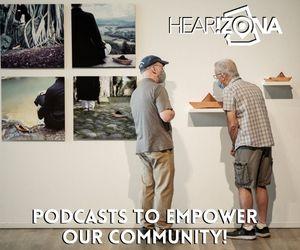Click to Listen:

Haitink retires at 90
Muslim Slave's Story Becomes Opera in Spoleto
It’s “This Week in Classical Music” – An update on what’s happening in the classical music world; I’m Randy Kinkel.
In January, 90-year-old conductor Bernard Haitink first shared the news that he was taking a sabbatical. Now Haitink confirms for the first time what was already whispered in corridors: he’s calling it quits on his 65+ year career.
In September, in the Swiss city of Lucerne, he conducts for the last time.
"Listen," says Haitink in his London home. "I'm 90. And when I say I'm taking a sabbatical, it's because I don't want to say, I'm stopping. I don't feel like (doing) all those official goodbyes, but the fact is that I will no longer conduct. "
So he says goodbye, the man who was head of the Royal Concertgebouw Orchestra for 27 years, the conductor for whom the world's top orchestras are still rolling out the red carpet.
Informally he has already said goodbye in Munich and Chicago, London and Berlin. 'Yes, it's a whole collection. Of course I have feelings about it, but I try to keep it isolated. If I shed a tear, I do it privately. "
In June of last year, after a sublime performance of Mahler's Ninth Symphony , he stumbled and fell in Amsterdam during the closing applause. "Some people thought: that's it then. I thought so myself." The fall played a big role in his decision to stop conducting.
This summer Haitink fans get their last chance to see the maestro in Salzburg, London and Lucerne, in concerts with the Chamber Orchestra of Europe and the Vienna Philharmonic.
What will he do with his free time? "Just live. My wife is very inventive in organizing things. And I am an avid reader."
Haitink hasn’t completely closed the door on future conducting gigs. 'If there is a need somewhere, maybe I can respond. But whether I do it depends on so many factors. The program, the rehearsal time, the distance. But to be honest: once I have stopped, I do not believe I will still do it." He said.
When we think of the Transatlantic Slave Trade and the experiences of African slaves in the rice economy of the coastal Southeast,
we don’t usually think about the fact that a portion of these men and women brought here against their will, maybe 10 or 20 percent,were Muslim. And a large number of these Muslim slaves were educated, literate, book smart.
One who passed through Gadsden Wharf on the Charleston Harbor was Omar Ibn Said, sold in Charleston in 1807 at age 37 to a brutal master.
He escaped to North Carolina, was captured and jailed, then sold again to James Owen, the brother of one of the state’s governors. In 1831, Ibn Said wrote his autobiography in Arabic. In 2017, the book was acquired by the Library of Congress and translated into English.
Spoleto Festival General Director Nigel Redden learned of Ibn Said and immediately an idea popped into his head: Opera.
The festival will stage a musical rendering of Ibn Said’s extraordinary life, with its connections to Charleston and its compelling narrative arc. It would be a way for the festival to mark Charleston’s 350th anniversary, to acknowledge the efforts of the International African American Museum and to shed light on a lesser-known aspect of American slavery.
For the music, they chose composer Rhiannon Giddens. Giddens is a classically trained musician who studied opera and vocal performance; She is a founding member, lead singer, fiddler, and banjo player with the old-time music band Carolina Chocolate Drops, Giddens is a native of Greensboro, North Carolina and has become a champion of research-based string band music with African and African American origins and influences.
“My work as a whole is about excavating and shining a light on pieces of history that not only need to be seen and heard, but that can also add to the conversation about what’s going on now,” Giddens said in a statement. “This is a story that hasn’t been represented in the operatic world, or in any world.”
For more on these and other items and events, check out our website at kbach.org, where you can also listen online; look for the podcasts page to subscribe to the “This Week in Classical Music” Podcast. We’re also available on Itunes. For “This week in Classical Music”, I’m Randy Kinkel.










